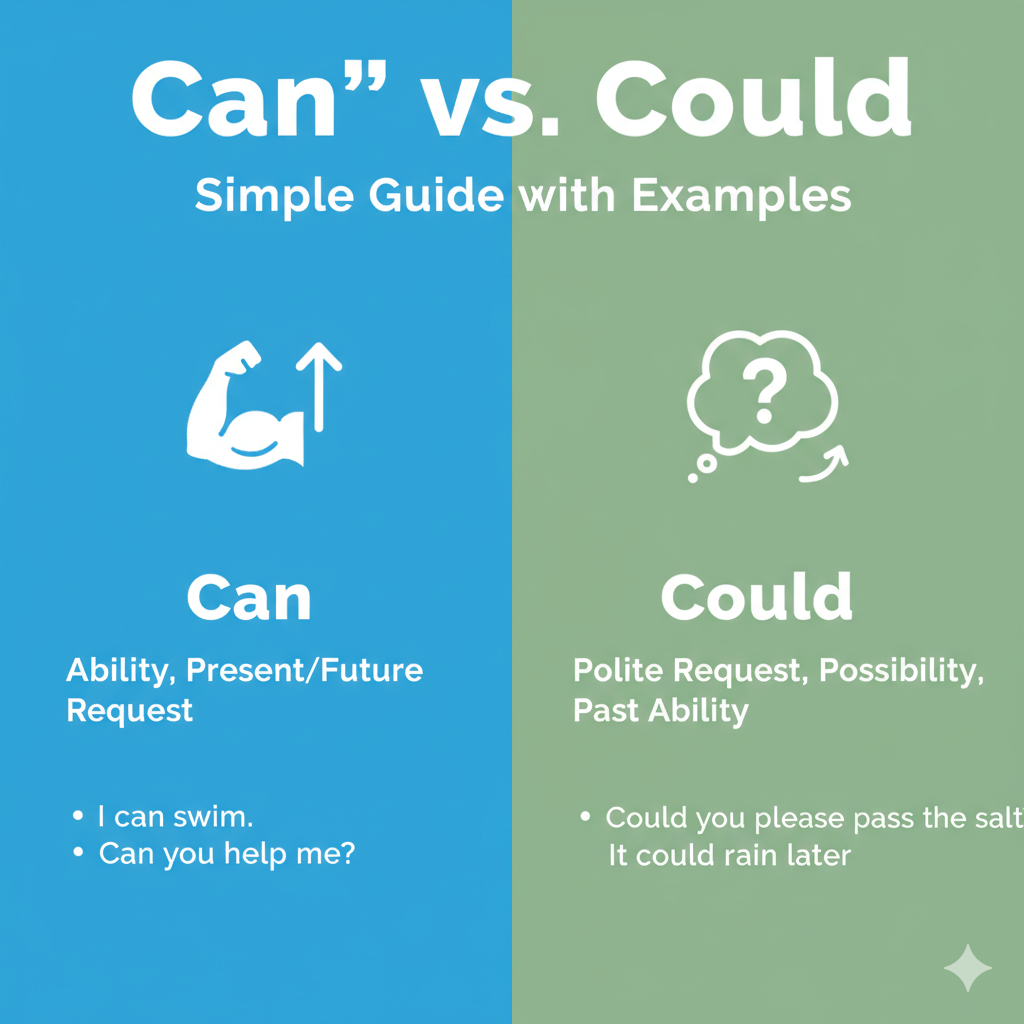“Can” vs. “Could”: Simple Guide with Examples

English learners often get stuck between can and could. They look similar but aren’t always used the same way.
Don’t worry—Midoo AI will break it down for you today with simple rules and examples.
Can – Ability or Permission
Can is used to talk about what someone is able to do, or when they are allowed to do something.
Examples:
- I can swim. (ability)
- She can play the piano. (ability)
- You can leave early today. (permission)
- We can see the stars clearly tonight. (ability)
- He can be very funny sometimes. (possibility)
👉 Tip: Use can for things you are able to do right now or general truths.
Could – Past Ability, Politeness, or Possibility
Could is often the past tense of can, but it’s also used to make polite requests or talk about possibilities.
Examples:
- When I was a child, I could run very fast. (past ability)
- You could ask your teacher for help. (suggestion)
- Could you open the window, please? (polite request)
- It could rain later. (possibility)
- If I had more time, I could learn another language. (conditional)
👉 Tip: Use could when talking about the past, being polite, or showing something is possible but not certain.
Quick Trick to Remember
- Can = ability or permission now.
- Could = past ability, polite requests, or uncertain possibility.
One sentence to compare:
- I can help you today, but yesterday I could not.
Final Tip from Midoo AI
Think of can as the present and strong form, and could as the past, polite, or softer form. Keeping this in mind will make choosing the right word much easier.
FAQS:
Q1: Is “could” always past tense?
Not always. It can be past tense, but it’s also used for polite requests and possibilities in the present or future.
Q2: Can I use “can” instead of “could” in polite questions?
Yes, but could sounds more polite. Example: “Can you help me?” vs. “Could you help me, please?”
Q3: What’s the difference between “can” and “could” in possibility?
- Can = something is definitely possible.
- Could = something is maybe possible.
Q4: Which one is correct: “I can not” or “I cannot”?
Both are correct, but cannot is more common in writing.
Q5: Should English learners focus more on “can” or “could”?
Both are important, but start with can for present ability. Then learn could for past ability and polite requests.